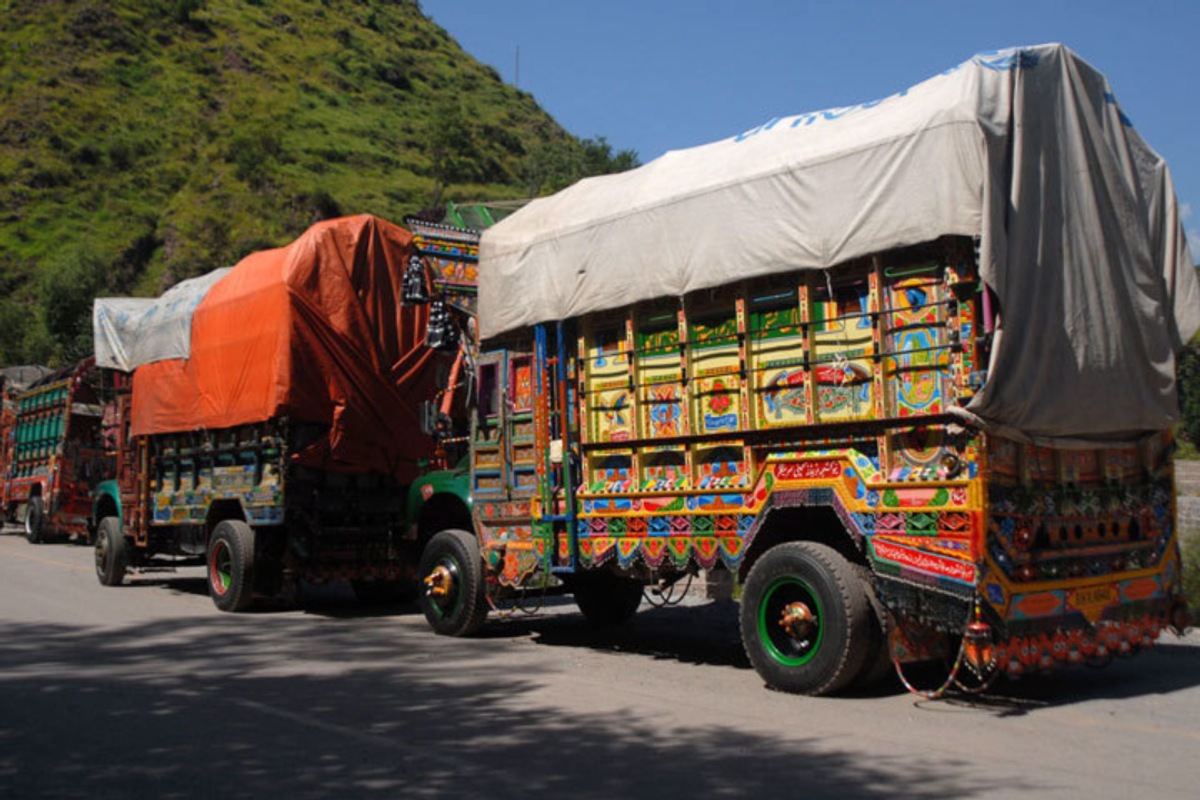Afghanistan-India transit trade through Pakistan plummets amid shifting regional routes
Afghans increasingly shift focus to neighboring countries for commerce

Shahzad Raza
Correspondent
Shahzad; a journalist with 12+ years of experience, working in Multi Media. Worked in Field, covered Big Legal Constitutional and Political Events in Pakistan since 2012. Graduate of Islamic University Islamabad.

Afghanistan's trade with India has declined 59% in FY24, as both imports and exports through the Pakistani route witnessed sharp contractions, official data reveals.
Imports by Afghanistan via Pakistan fell to $398.36 million from $799.18 million a year earlier, a 50%. Exports tumbled even further — down 83% to just $50.96 million, compared to $295.8 million in FY23, according to numbers compiled by customs.
The total volume of Afghanistan-India trade dropped from $1.09 billion to $449.32 million, raising serious concerns over the sustainability of trade through traditional corridors amid growing regional shifts in connectivity.
Product-wise collapse
Afghanistan’s imports of sugar under transit trade through Pakistan declined 51%, pharmaceuticals down 58%, and textiles dropped 70–82%.
Women's garments import shrank by 86%, while imports of seeds, iron and steel, and synthetic fabrics all posted decline of over 80%. Meanwhile, gains were seen in oilcake up 106% and food preparations up 36%.
The collapse in India-bound trade comes as Afghanistan increasingly shifts its focus to neighboring countries for commerce. Their imports from Iran surged from $1.53 billion to $2.37 billion over the past year, and Turkmenistan, Uzbekistan, and Kazakhstan also gained in trade share.
Pakistan continues to be a key player in Afghan trade, with exports to Afghanistan rising to $1.06 billion in 2023-24 despite a drop in imports.
Data shows that Pakistan’s exports to Central Asian Republics (CARs) jumped to $278.1 million in 2023-24, up from $166.9 million in the previous year, as new trade routes through Afghanistan gain traction.
Imports from CARs, however, dropped by nearly 43% during the same period.
The data signals a shift in regional trade preferences away from India-centric corridors, possibly influenced by political, logistical, and tariff-related factors, with broader implications for regional connectivity and economic diplomacy in South and Central Asia.










Comments
See what people are discussing